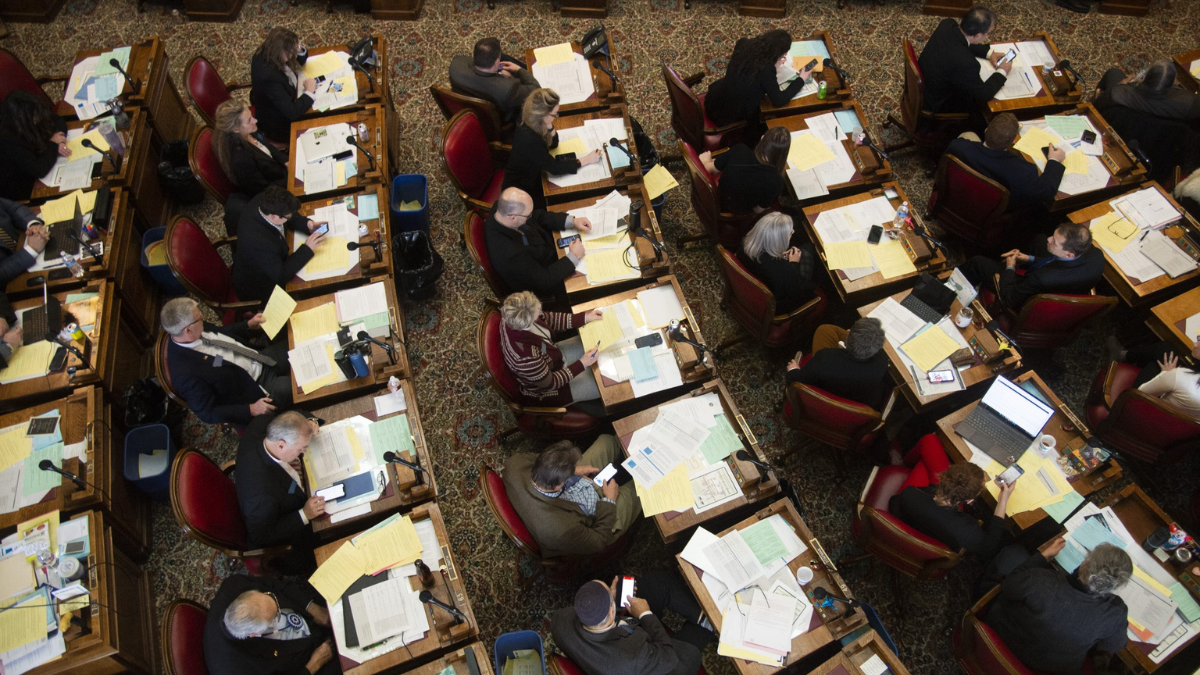Pesticide Protections: Iowa Lawmakers Pave Way for Industry Shield
Companies
2025-03-26 23:18:04Content

Iowa Lawmakers Advance Bill Shielding Pesticide Manufacturers from Legal Action
In a move that could significantly impact agricultural litigation, Iowa legislators have pushed forward Senate Bill 394, a controversial proposal designed to provide legal protection for pesticide companies. The bill would create a robust defense mechanism, effectively immunizing manufacturers from civil lawsuits when their product warning labels have been officially registered with the U.S. Environmental Protection Agency.
This proposed legislation represents a significant potential shift in how pesticide-related legal disputes might be handled in the state. By offering manufacturers a legal shield based on federal registration, the bill aims to reduce the legal risks faced by agricultural chemical companies while potentially limiting consumers' ability to seek damages.
Proponents argue that the bill will provide clarity and stability for pesticide manufacturers, while critics suggest it could potentially reduce accountability for companies producing agricultural chemicals. The bill's advancement signals a complex ongoing debate about corporate liability and consumer protection in the agricultural sector.
As the legislative process continues, stakeholders from agricultural, legal, and environmental communities are closely monitoring the bill's potential implications for Iowa's farming industry and broader legal landscape.
Pesticide Industry Shield: Iowa's Controversial Legal Safeguard Sparks Nationwide Debate
In the heart of America's agricultural landscape, a legislative battle is brewing that could fundamentally reshape the legal protections afforded to pesticide manufacturers. The proposed Senate Bill 394 represents a pivotal moment in the ongoing dialogue between corporate interests, environmental safety, and legal accountability, raising critical questions about the balance between industrial protection and public welfare.Unraveling the Legal Armor: Pesticide Companies' Quest for Immunity
The Legislative Landscape of Chemical Protection
The proposed legislation emerges as a complex tapestry of legal maneuvering, revealing the intricate relationship between agricultural industries and regulatory frameworks. Pesticide manufacturers have long sought comprehensive legal shields that would insulate them from potential litigation arising from their product's environmental and health impacts. Senate Bill 394 represents a bold attempt to codify these protections, potentially setting a precedent that could ripple through state and federal legal systems. Experts argue that such legislative efforts are not merely about corporate protection, but reflect a deeper philosophical debate about industrial responsibility and risk management. The bill's provisions would create a robust legal barrier, effectively limiting the ability of individuals and environmental groups to challenge pesticide companies through civil litigation when their warning labels meet federal registration requirements.Unpacking the Potential Consequences of Legal Immunity
The implications of this proposed legislation extend far beyond the immediate legal landscape. Environmental advocates warn that such broad protections could potentially reduce corporate accountability and diminish incentives for developing safer, more environmentally conscious agricultural chemicals. By creating a near-impenetrable legal shield, the bill might inadvertently remove critical mechanisms of corporate oversight. Scientific research has consistently highlighted the complex interactions between pesticides, ecological systems, and human health. The proposed legal framework could potentially limit the ability of researchers and affected communities to seek legal recourse in cases of demonstrable harm, raising significant ethical and public health concerns.Economic and Agricultural Implications
From an economic perspective, the bill represents a strategic move to provide stability and predictability for pesticide manufacturers. By reducing potential legal vulnerabilities, the legislation could attract investment, support agricultural innovation, and provide a more secure operational environment for chemical companies. However, this economic calculus must be carefully balanced against potential long-term environmental and health costs. The agricultural sector stands at a critical juncture, where technological advancement must be harmonized with responsible environmental stewardship.Broader Regulatory Context and National Trends
Senate Bill 394 does not exist in isolation but is part of a broader national conversation about corporate liability, environmental regulation, and the role of state legislation in managing industrial risks. Similar legislative efforts have emerged in various states, suggesting a coordinated approach to reshaping legal frameworks surrounding chemical industries. The bill's progression through Iowa's legislative system signals a potentially transformative moment in how states approach industrial regulation. It challenges existing paradigms of corporate accountability and invites a nuanced discussion about the delicate balance between industrial innovation and public protection.Public Response and Future Outlook
Public reaction to the proposed legislation has been notably polarized. Agricultural communities and industry representatives generally view the bill as a necessary protection for businesses, while environmental groups and public health advocates perceive it as a dangerous erosion of legal safeguards. As the legislative process unfolds, stakeholders from diverse backgrounds continue to engage in a complex dialogue about the bill's potential ramifications. The ultimate outcome will likely have far-reaching consequences for how pesticide manufacturers operate, how environmental risks are managed, and how legal systems approach corporate accountability.RELATED NEWS
Companies

Dividend Boost Alert: 10 Companies Set to Sweeten Investor Payouts This April
2025-03-30 21:52:13
Companies

Surprise Pivot: Treasury Pulls Back on CTA Crackdown, Giving US Businesses Unexpected Reprieve
2025-03-05 15:32:00






